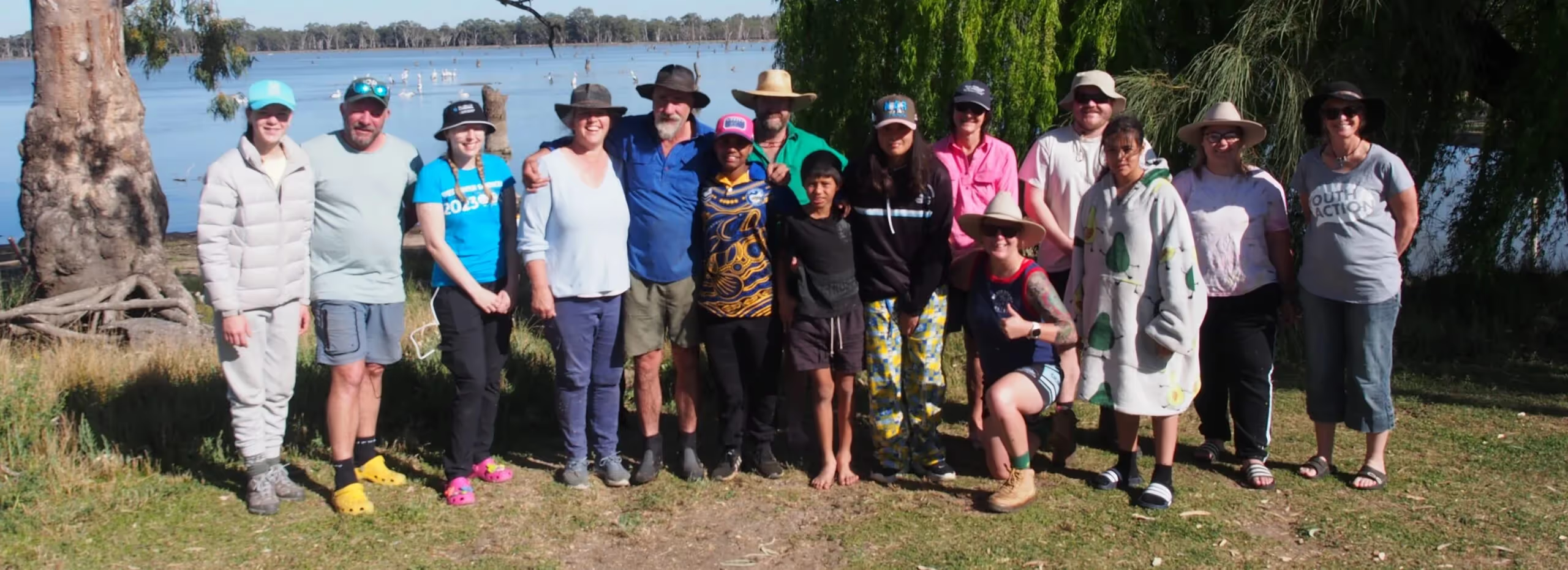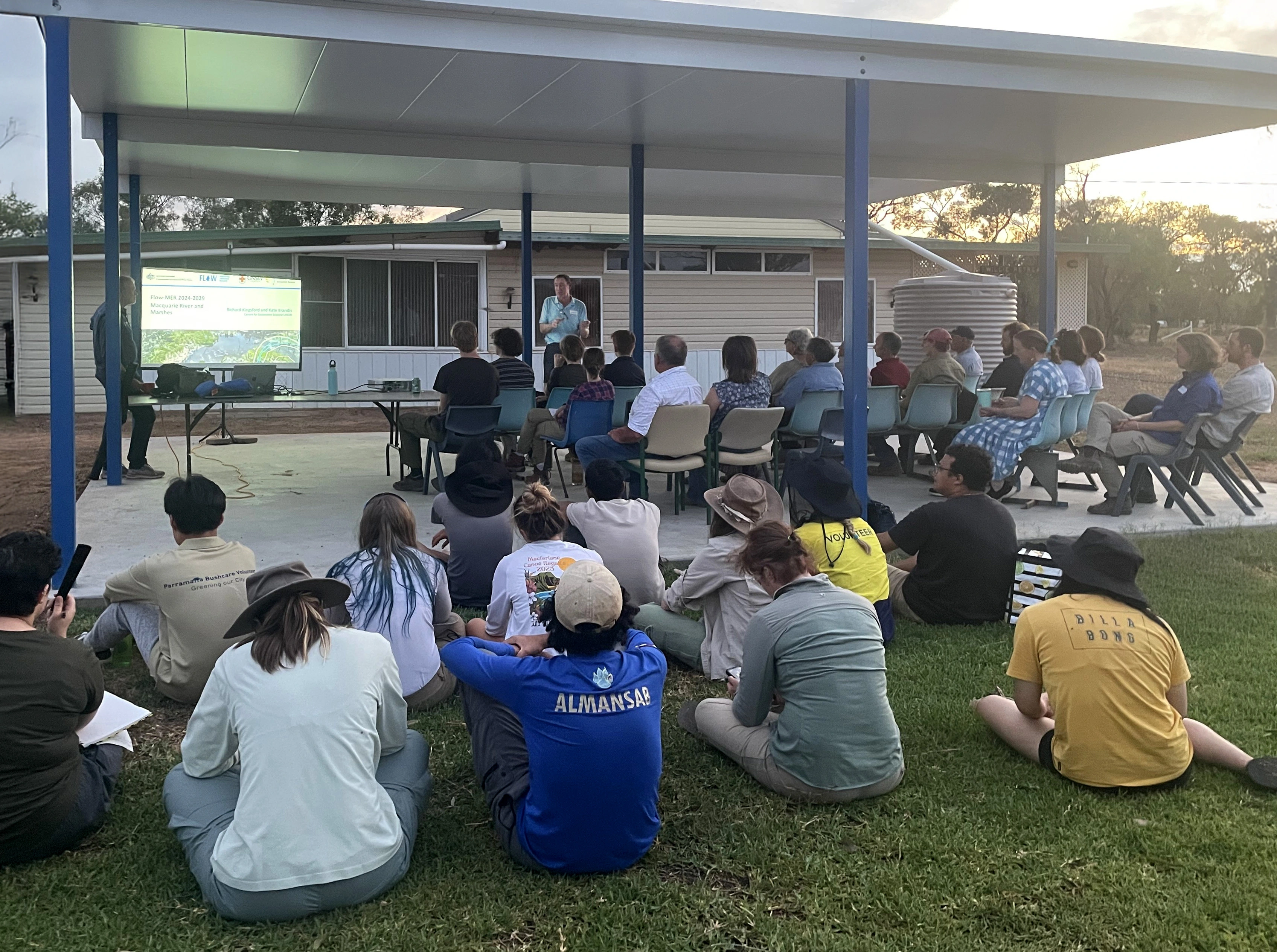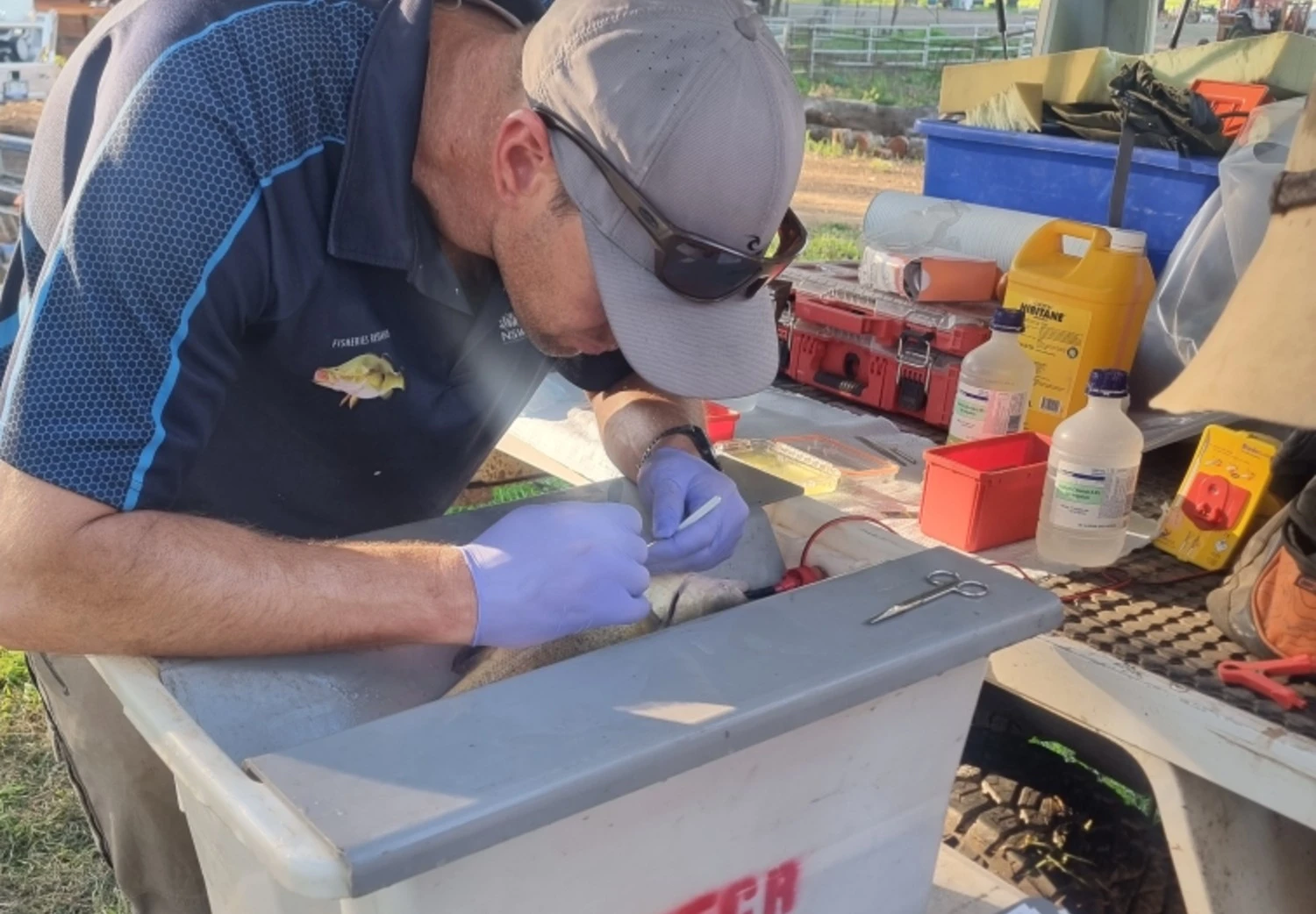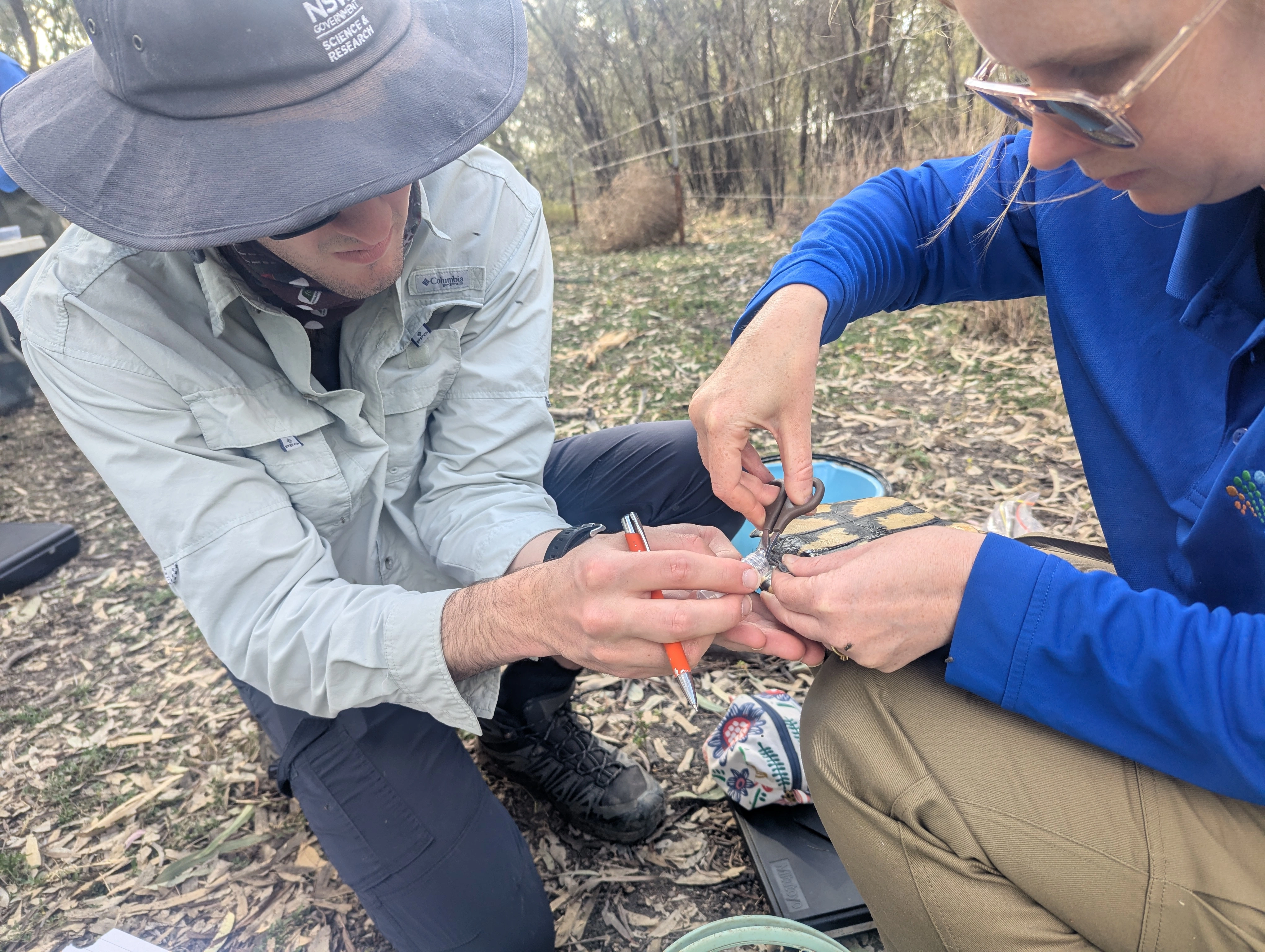I became involved with the communication and engagement component of the FlowMER program in the Lachlan following returning to my home in Lake Cargelligo following an extended period working in western Queensland.
That was in the late twenty-teens. At first I wrote a quarterly piece for the newsletter (called ‘The Lachlan Diaries’) and published articles in the local papers about all things biological and ecological in the catchment.
I still write the column and the articles, but from 2020 everything started to ramp up a little, because this was when we ran the first of many ‘Robinson Crusoe Island Camps’ for the local youth group called ‘Down The Track’, and since then – well, you could say that things have evolved comparatively quickly.
Down The Track (DTT) was started by a dynamic young woman called Lana Masterson in Lake Cargelligo. It was based on – and pretty-much spawned from – the BackTrack organization run by Bernie Shakeshaft in Armidale.
The basic concept was to create an organization that could pick up kids who had fallen through the school system – or were destined to – and get them ‘back on track’. Although DTT is not an Aboriginal organization as such, all the clients have so far been Aboriginal due to the demographic nature of the local town and district.
At some stage in late 2019, Lana, myself and another mate and local farmer Peter Skipworth came up with the idea of taking the DTT kids across to the island in the middle of the Lake for a weekend of ecological surveying and outdoor education.


With that in mind, Peter and I trekked over to an auction in Wagga and successfully bid on a big (6 metre) flat-bottomed boat. Then we spent an afternoon in Pete’s shed stuffing around with the 70hp motor.
On a sunny Saturday in March 2020 we loaded up 7 kids, their camping gear, Lana, another DTT employee (Katy Quinn), cooking gear and sampling equipment and headed over to the Island. Once there we surveyed birds and vegetation and then set fyke nets in order to sample the aquatic fauna of the Lake before a barbeque dinner and an early night.


In the nearly four years since, not much has actually changed, except now we run 4 to 6 camps a year and over that time have carted a far larger number of participants and guest presenters than we could ever have imagined back in early 2020.
Luckily, my place also fronts Lake Cargelligo, so we’ve ditched the idea of carrying a small mountain of camping equipment over to the Island and instead just camp down the front. We’ve had people along from the NSW Biodiversity Conservation Trust, NSW Department of Planning and Environment, the Commonwealth Environmental Water Holder and the University of Canberra and the activities have expanded to include vegetation transects and quadrats, drone deployment and bug identification.

On every Sunday morning the DTT island-trip pattern is also still the same: empty the fykes, identify and measure the animals, write it all down, then roll the swags and start packing up.
It’s definitely proven to be a winning formula, especially since nowadays the data that we collect also goes straight to catchment managers and helps with informing how the river could be run.
Nonetheless, it’s still the happy and enthusiastic faces of the kids that remain the big drawcard for me and Peter. During the recent trip in September 2023 we had a chat and admitted to each other that we’d rather run a DTT weekend than pretty-much most other options on our weekends.
Over the next little while we’ll hopefully get hold of a Porta-a-Loo and a pile of new lifejackets and that should be about all we need for the next couple of years.
But if DTT is the flagship enviro-outdoor education initiative it’s definitely not the only one.
Mindful that DTT only targets and affects a relatively small number of kids, we ran a primary enviro-day for students from St Joseph’s school in Hillston and St Francis Xavier’s school in Lake Cargelligo in 2022, and then went all-out in 2023 with a 60-student day in 2023 involving all the local schools. Luckily, I enticed staff from the Lake Cowal Conservation Centre to come along and help on that one through Mal Carnegie, another mate and a (very) fine natural historian and wildlife photographer.
Commencing in 2021, Year 11 biology students from Canowindra High School have accompanied me on fish sampling trips in the Belubula River on three occasions since – including one memorable camp-out – and the senior school project has been expanded to include students from Condobolin High School and Lake Cargelligo Central School in 2023.
So it’s been a busy few years.
“Research is good, but once you get to your mid-fifties you start to realise that you’re not going to be around forever.”
Educating the potential biologists and ecologists of the future has definitely been a side-project that has evolved into a main project in the mid-Lachlan, and I’m extremely proud of what we’ve achieved over a few short years.






